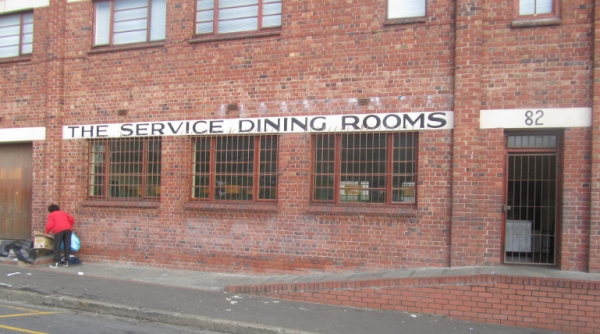City programme helps homeless rebuild their lives

Khulu* lived on Table Mountain for two years, eating in soup kitchens, until he found work sweeping streets as part of a programme run by the City of Cape Town and Khulisa Social Solutions. Today he has a job and owns a wendy house in Khayelitsha.
When his family decided to sell the house he was living in in Mandela Park, Khulu decided not to return to the Eastern Cape, where he comes from.
But he had no job so he moved onto the streets.
“The only plan that came to my mind was that I should get a place to sleep in Cape Town CBD because it is safe. Later I noted that sleeping in the streets in town is also a problem. Security always harasses us. So I decided to go up the mountain under the trees and between rocks,” he says.
He was given blankets by a city pastor, and he ate his meals at soup kitchens in the city centre. He refused to beg, he says, “It’s not easy to live in the mountain, because it is difficult to plan your day. Winter months are the most problematic times because of the rain and the cold.”
One day at the Service Dining Rooms in Canterbury Street he met Khulisa’s Jesse Laitinen. She asked him if he would like to join the pilot programme run by the City of Cape Town and Khulisa, with other partners. He became one of 40 people taken into the City’s expanded public works programme and worked as a street sweeper for six months, earning R1,200 every two weeks.
He opened a bank account and started to save. He saved R3,700 to buy himself a wendy house in Khayelitsha where he now lives.
When the project ended, Laitinen found him a job at a city restaurant.
“Let us look at these people with a fresh eye. They can contribute to the economy if we meaningfully engage with them,” she says. “Let us look at the street people positively. Many have potential and can contribute to society if given a chance. If we just chase them away, where are they going to go?”
At the start of the project, Khulisa says, 91% of the people involved were living on the street. Six months later, only 23% were living on the street; 32% had been reintegrated into their families, 18% were in shelters, and 27% were living with friends or in their own lodgings.
Laitinen says the next programme starts in November, when 40 more applicants will be taken in.
“I am now happy living in my wendy house in Khayelitsha,” says Khulu. “I urge those people in the streets not to just go begging but look for work and come out of the street.
* not his real name
Next: Open Streets comes to Bellville
Previous: Helping Andiswa

This article is licensed under a Creative Commons Attribution-NoDerivatives 4.0 International License.


